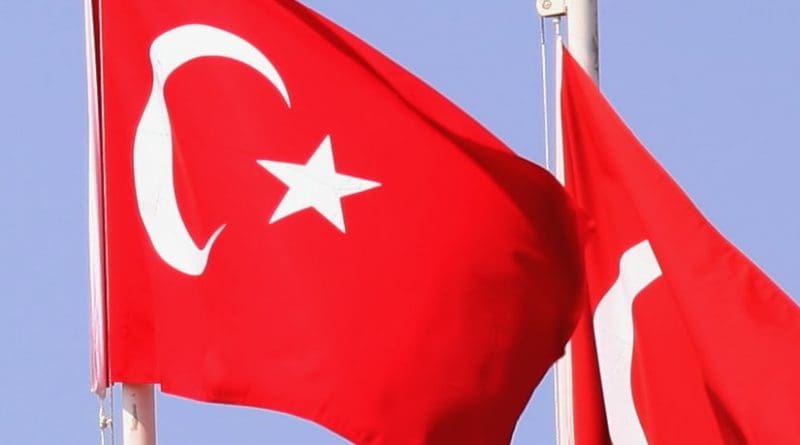Turkey’s Political Turbulence Cause Of Strategic Concern – Analysis
By SAAG
By Dr Subhash Kapila
Turkey’s political turbulence evidenced by the attempted military coup in recent weeks in mid-2016 raises grave strategic concerns arising from its crucial geostrategic location astride the junction of Europe and Asia.
Turkey perceptionaly stands besieged today both internally and externally as a result of its domestic politics and its foreign policy deviating from its long established Western-centric policies.
Turkey’s ethos after the overthrow of the Ottoman Empire in the wake of World War I under the leadership of modern Turkey’s legendary founder Kemal Ataturk was that of a Westernised, progressive and moderate Muslim democratic state, but secular in outlook.
After Turkey’s non-admittance in the European Union, Turkey in recent years and under the present regime diverted its political and foreign policy attention to its Middle East neighbourhood.
This change of foreign policy tracks was problematic in the sense that the Middle East itself was a turbulent and strategically fractured region. Further, the Middle East with two contending regional powers in the form of Iran and Saudi Arabia brooked no possibilities of Turkey emerging as the predominant regional power of the Middle East.
Further, Turkey geographically located in the Northern confines of the Middle East was handicapped by being removed from the centre of Middle East dynamics.
With the relevant contextual background established, let us now turn back our attention to the Turkey of 2016 being besieged both internally and externally, and the resultant turbulence impacting contiguous regions in Asia, Europe and Eurasia.
The attempted Turkish Army coup, though defeated, does however throw up images of a polarised Turkish society with restiveness against the present political regime. Perceptionaly again, the virtually paranoid responses of widespread purges within the Turkish Armed Forces, of the academia, within the judiciary and the Presidential Guards are indicative of the opposition to the present regime’s political policies.
Under the present regime, it seems that the Kurdish independence /autonomy struggle has intensified creating challenges of both insurgency and terrorism. This adds to the above challenge.
Turkey’s political and military outreach to dislodge Syrian President’s regime through permissiveness of ISIS and so-called Syrian Freedom fighters has multiplied Turkey’s challenges with a turbulent southern flank. Turkish policies in this direction have failed and also brought Russian military intervention to assist Syria.
Externally, Turkey today seems to be besieged on all its geographical flanks. Turkish foreign policies under the present regime alienated Israel and Iran with whom Turkey earlier enjoyed proximate relations. So regionally, Turkey can no longer be said to have a peaceful neighbourhood.
Turkey earlier had good relations with Russia politically and economically. With Turkish policies of meddling in the Syria to dislodge the Assad regime whether of its own volition, or in concert with the United States and Syria. Turkey-Russia relations have plummeted and especially after the Turkish Air Force shot down a Russian fighter plane while in Syrian airspace.
Turkish President’s recent attempts to placate Moscow will take a long time to fructify, simply, because Turkish and Russian strategic interests are clashing over Syria. Turkey itself is to blame for an unwarranted strategic over-reach in a war which had global overtones.
Turkey was a leading member of the Western NATO Alliance and continues to be so. However, with the complicated geopolitical and geostrategic issues in which Turkey has enmeshed itself in recent years raises doubts as to whether Turkey’s value within in the NATO Alliance still remains intact.
Concluding, one hopes that Turkey in the weeks and months to come initiates policies of national reconciliation and national healing of the polarisation domestically evident. Turkey ethos-wise over nearly a century has been Western-oriented and it must reclaim that heritage to regain its traditional pre-eminence in Asia, Europe and Eurasia.

